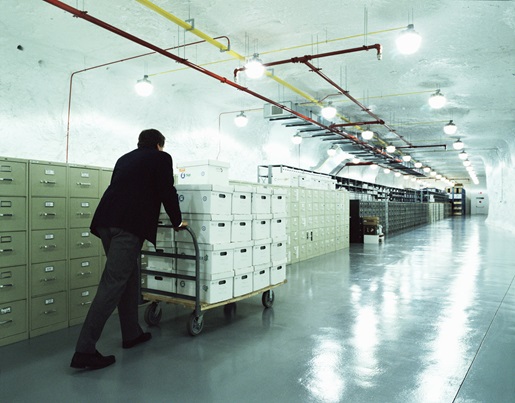Paperless transactions are simple, convenient, and secure, which is why many customers now prefer them to traditional payment methods.
Paperless transactions aren't the way of the future; they're the way of the present. Over the past three decades, both businesses and customers have embraced online payments, and it's easy to see why. Online payments can be much simpler, faster, and more secure than paying bills by cash or check. Thanks to smartphones and mobile wallets, customers often want to ditch paper payments and embrace digital ones instead.
Implementing paperless transactions requires some time and resources. However, the benefits for both your business and your customers can be substantial. From shorter wait times to helping the environment, customers have plenty of reasons to go digital. And they have plenty of reasons to support companies that do the same.
Adopting a paperless approach is an excellent way to futureproof your business. Read our complete guide to find out what you need to know before you get started.
Paperless transactions are easy and fast
Paper payments can eat up a lot of time, especially if snail mail is involved. Sending the customer a bill takes time; filling out a payment form takes time; mailing out a check takes time. Compare and contrast with an online bill pay option, where a bill arrives electronically each month and a customer can keep a payment method on file for it. Customers can even enroll in an "autopay" option for maximum convenience.
In 2020, U.S. Bank conducted a survey to gauge customer attitudes toward online payments. Only 48% of respondents — mostly people aged 55 and older — preferred to receive paper bills. Meanwhile, 64% of respondents were registered with utility or telecom online portals, and paying bills was one of the primary use cases.
Personalized payment options
There aren't that many ways to pay with paper. In a physical location, you can pay with cash, but paying with a check can be cumbersome and time-consuming. By mail, you can pay with a check, but paying with cash is potentially unsafe. Either way, the transaction is time-consuming. A clerk has to calculate change, for example, or an office manager has to make a bank run.
By contrast, paperless transactions can come from almost any online source. Customers can pay online bills directly from their bank accounts; they can enter their credit card information into mobile payment apps; they can even store money in electronic services, such as PayPal or Venmo. In fact, a Pew Research Center study in 2022 found that about 40% of Americans didn't pay for anything with cash during a typical week.
Better for businesses
What's good for a business is often good for customers as well. Paperless systems can automate a lot of the busywork that goes with processing payments, and that's beneficial for everyone involved. For example, mobile payment apps at restaurants often include precalculated tipping options. These paperless receipts may allow waitstaff to turn tables quicker, and give more customers a chance to eat.
Consider the case of Indianola Municipal Utilities, which provides power and water for more than 7,000 customers in Iowa. The company estimates that it saves $1 for each monthly bill it doesn't have to mail, which would put its yearly savings somewhere around $84,000. Reducing costs like this can help keep prices low, and customers happy.
Did You Know?:ITPro awarded the fi-7480 scanner a perfect five stars, citing its "excellent quality" and "superb" software. Click here to read the full review and learn why it earned an "ITPro Recommended" accolade.
Environmental benefits
Producing paper takes an environmental toll. Tech magazine CIO explains how paper manufacturing contributes to deforestation. The logging industry also requires vast quantities of water and fossil fuel. Taken together, these factors can put considerable stress on local ecosystems.
A Deloitte study in the Wall Street Journal found that customers are sensitive to these issues. A majority of respondents want companies to be more proactive about climate change. Meanwhile, one-quarter of respondents "say they will switch to buying products from an organization that shares their values on environmental issues." Investing in a paperless office can help reduce your environmental impact.
Improved security
Cash is incredibly easy to lose, whether it's plucked out of a pocket or stolen from snail mail. Check fraud is not much more difficult. According to Wired, even credit cards are relatively easy to compromise, due to outdated security systems at big box stores.
Online payments, on the other hand, employ more comprehensive security measures. Western Union discusses this point in relation to mobile wallets, such as Apple Pay and Google Pay. These systems use technologies such as encryption, tokenization, and two-factor authentication to prevent unauthorized access. While no payment system can boast 100% impenetrable security, digital systems are much harder to tamper with.
Did You Know?:The fi-7700 scanner can accurately scan envelopes, folded drawings, and receipts with multiple layers in its Manual Feed Mode. Click here to learn more.
Our recommendation: fi-8040
Those who are interested in moving toward paperless transactions have no shortage of options. We take great pride in having spent the last 50+ years researching, designing, and developing some of the most advanced and powerful electronics in the world, including our professional grade fi Series scanners.
Built to purpose for the most demanding document handling jobs, fi and SP scanners are capable of processing tens of thousands of pages per day at the highest levels of accuracy. Their intuitive integration capabilities with all existing work suites minimize time-to-value for businesses looking to invest in tools that can pay dividends for years to come.
The fi-8040 scanner is a valuable tool for digitizing your office. The device offers a compact profile, intuitive touchscreen controls, and optimized image quality. Thanks to DirectScan technology, users can scan documents directly to a network folder without the need for a PC. Furthermore, the fi-8040 can handle up to 50 pages per load, and scan an estimated 6,000 sheets per day. Click here to learn more or shop the rest of our production scanner line.
Note: Information and external links are provided for your convenience and for educational purposes only, and shall not be construed, or relied upon, as legal advice. PFU America, Inc. makes no representations about the contents, features, or specifications on such third-party sites, software, and/or offerings (collectively “Third-Party Offerings”) and shall not be responsible for any loss or damage that may arise from your use of such Third-Party Offerings. Please consult with a licensed attorney regarding your specific situation as regulations may be subject to change.









